#Maria Agresta
Text
Don Carlo at the Bavarian State Opera
Music Direction Daniele Rustioni Producer Jürgen Rose Don Carlo Charles Castronovo Elisabeth of Valois Maria Agresta Filippo II John Relyea Rodrigo, Marquis of Posa Boris Pinkhasovich Princess Eboli Clémentine Margaine The Grand Inquisitor Dmitry Ulyanov | 28.07.2023
The grey and gloomy weather did not hinder the enthusiasm of the audience at the Bavarian State Opera, where they gathered to witness Jürgen Rose's masterful production of Don Carlo. I only managed to secure a standing place for this sold-out production. Nevertheless, it turned out to be an excellent location at a very reasonable price. My view remained mostly unobstructed, making it a better experience than the more expensive seat I had in Zürich.
The staging was simple, kept minimal for most of the time. The first scene started in the dark Fontainebleau forest, with a giant crucifix serving as the centerpiece and a constant reminder to the omnipotence of the catholic church in the storyline.
The best part of the staging was the auto-da-fé scene. The condemned heretics were tied up on a woodpile as the crowd sang the chorus. A red carpet was rolled out, welcoming the royal procession, followed by a parade depicting the Via Dolorosa, and ending with the presentation of La Pietà. The final scene of Act 3 peaked with the burning of the heretics (with REAL fire), which is often cowardly omitted by other productions. As the curtain dropped, it was greeted by a rapturous ovation from the audience (including me!).
It was a powerhouse presentation by the cast, but, in my opinion, the best performance award would go to Relyea as Filippo II. His commanding presence and emotive singing dominated every scene he was in. While Don Carlo is the title character, Filippo gets the best moments in the opera, from his iconic soliloquy to the duets with the other characters. This version also featured Lacrymosa, giving another opportunity for Relyea's Filippo to shine. I spoke to a young audience member during the intermission (we were probably the only ones who were still under 30). This was his third time seeing Don Carlo, and he said Relyea performed even better in München than in Covent Garden.
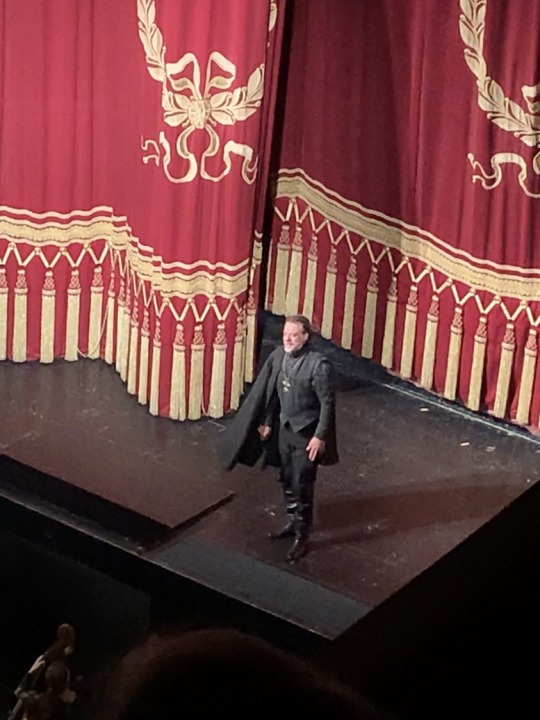
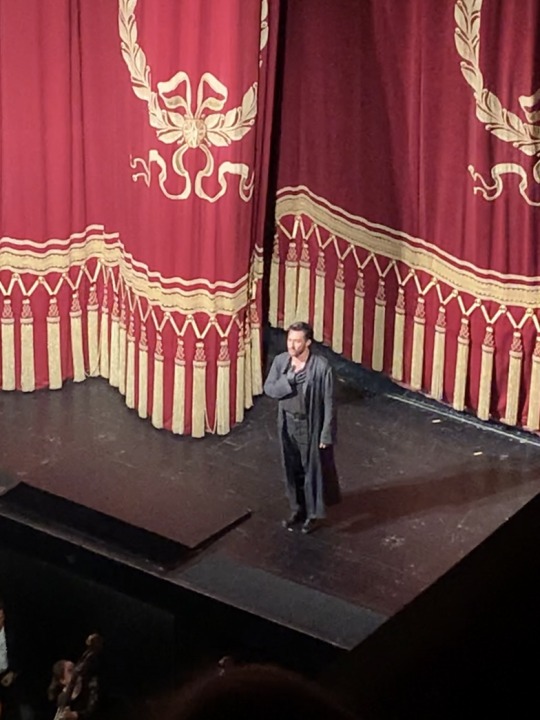

Castronovo and Agresta were solid as Carlo and Elisabeth, respectively. During the Fontainebleau duet, they constantly moved around the stage as if it was a rehearsed dance choreography, but it never looked unnatural.
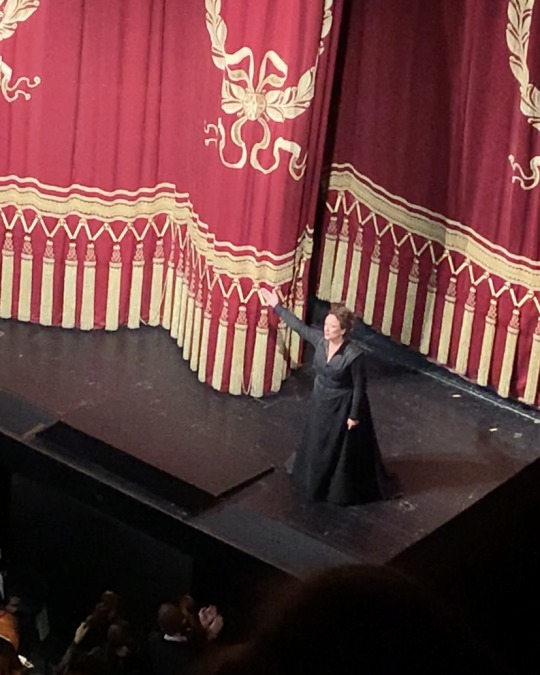

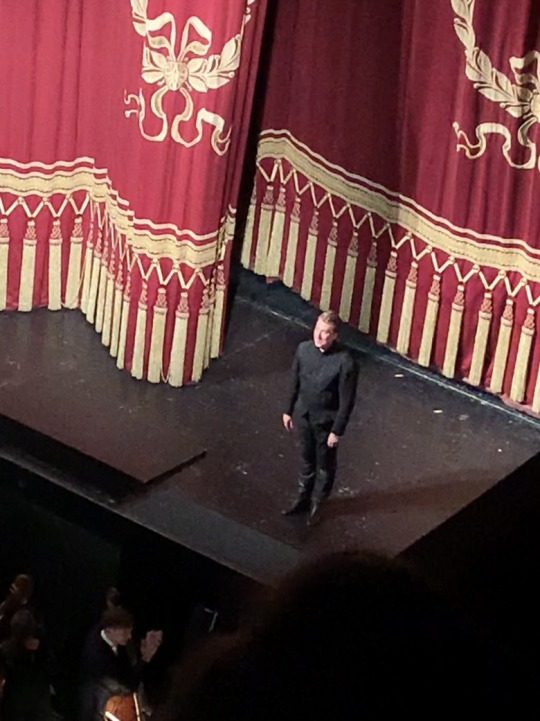
As much as I was disappointed by Tézier's withdrawal, Pinkhasovich was still a top-class replacement. The audience went wild at the end of his bromance duet with Castronovo's Carlo. Ulyanov delivered exquisite vocalism as the Grand Inquisitor, although he sounded younger than Relyea's Filippo. I don't want to label Margaine as the weakest link here, but I wish she had put more subtlety in her attempt at hitting those high notes. Nevertheless, she was dramatically excellent in the role of Eboli.
TL;DR: I would stand up for 4,5 hours all over again for this production and THIS cast!
#THIS IS A SUPER LATE POST that may have lost its relevance#but anyway here it is!#Carmen review is coming up... it two months time lol!#Verdi#Don Carlo#Don Carlos#opera diary#Charles Castronovo#Maria Agresta#John Relyea#Boris Pinkhasovich#Clémentine Margaine#Dmitry Ulyanov
15 notes
·
View notes
Text
LICEU 2022-2023: TOSCA (Agresta-Fabiano-Lučić;Villalobos-Nánási)
Tosca, acte 2. Fotografia de ©A Bofill gentilesa del Departament de Premsa del Gran Teatre del Liceu Producció de Rafael R. Villalobos, escenografia de Emmanuele Sinisi, vestuari de Rafael R. Villalobos, disseny de llums Felipe Ramos, pintures de Santiago Ydáñez
Estava cantat des de feia mesos que la nit de la primera representació de la Tosca dirigida per Nánási i Villalobos al Liceu hi hauria…

View On WordPress
#Cor i Orquestra del Gran Teatre del Liceu#Felipe Bou#Giacomo Puccini#Henrik Nánási#Hugo Bolivar#Jonathan Lemalu#Manel Esteve#Maria Agresta#Michael Fabiano#Milan Perišic#Moisés Marín#Rafael R. Villalobos#Tosca#Zeljko Lucic
0 notes
Text
Rome Opera Season 2022-2023
The Rome Opera season has been announced with nine programmes to be staged during 2022-2023.
Adams Passion – photo by Kristian Kruuser & Kaupo Kikkas
The Rome Opera season has been announced with nine programmes to be staged during 2022-2023.
Dialogues des Carmélites according to Emma Dante live on Rai5 and Radio3
On Sunday 27 November 2022, the curtain rises on a new production of Poulenc’s Dialogues des Carmélites, which has not been at Teatro Costanzi (Rome Opera’s theatre) since…

View On WordPress
#Eleonora Buratto#Fabio Sartori#Franco Zeffirelli#Gregory Kunde#La Fenice#Luca Salsi#Maria Agresta#Michele Mariotti#Robert Wilson#Rome Opera#Royal Opera
0 notes
Text

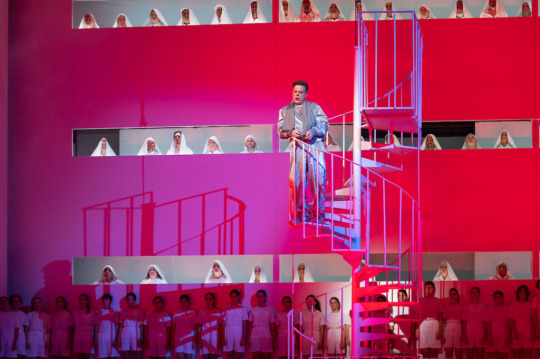


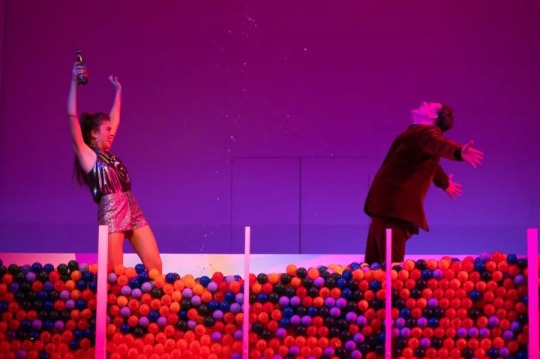

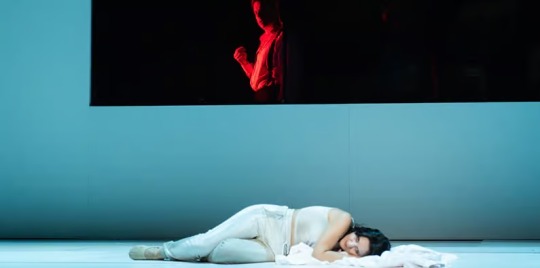


Some pics from Mefistofele @ Teatro dell'Opera di Roma, 2023 (dir. Simon Stone, Michele Mariotti; ft. John Relyea, Joshua Guerrero, Maria Agresta). I really liked some things about this staging, was meh on others, but the last scene absolutely destroyed me.
#mefistofele#mephistopheles monday#john relyea#hot faust summer#i did really like the aesthetic#but i think some aspects of the staging were more static than they should be#the minimalist set worked for me but like. the ensemble work needed to have more motion to compensate#let the chorus move around!#there was a tendency for long pauses between scenes as well and that hurt the momentum#but what i'm going to remember is that ending#😭
9 notes
·
View notes
Text
Musica da bere 2023 a Santa Maria Maggiore

Torna dal 7 luglio, a Santa Maria Maggiore, Musica da Bere, una serie di originali concerti selezionati dal direttore artistico Roberto Bassa.
La rassegna anche quest'anno sarà caratterizzata da una programmazione che alterna appuntamenti di musica classica con concerti di musica popolare, come uno spettacolo di teatro-canzone ispirato a Fabrizio De Andrè ed un concerto di opere sacre nella Chiesa di Buttogno.
L'inaugurazione è per venerdì 7 luglio alle ore 21 nel Parco di Villa Antonia, con il concerto Intimità musicali del Duo Guelaguetza. Ylenia Piola e Fabrizio Spadea per un viaggio tra le sonorità jazz e latin, senza dimenticare le loro radici italiane.
Il secondo appuntamento, alle 17.45 di sabato 22 luglio, sarà nella Sala della Musica del Teatro Comunale con il dialogo musicale Attorno alla Rapsodia in blue del duo pianistico formato da Angela Villa e Lilly Wunsch che, oltre a pagine tipiche del repertorio classico, vede la spettacolare versione originale della Blue Rhapsody di George Gershwin.
Venerdì 28 luglio alle 21 il Parco di Villa Antonia ospiterà E vienimi a cercare – De André canta di Dio, di vita e di amore, lo spettacolo ispirato all’album La buona novella di Fabrizio de Andrè, in versione originale.
I brani musicali, rivisitati, adattati ed interpretati da Sergio Salvi, si intercalano a riflessioni e monologhi inediti della voce narrante di Silvana Mossano.
Musica da bere proseguirà venerdì 4 agosto alle 21 presso l’Oratorio di Crana con il celebre Quintetto a Plettro Giuseppe Anedda, una delle migliori formazioni a pizzico del panorama internazionale, con Emanuele Buzi e Norberto Gonçalves da Cruz al mandolino, Vladimiro Buzi alla mandola, Andrea Pace alla chitarra ed Emiliano Piccolini al contrabbasso.
Il penultimo appuntamento è venerdì 11 agosto alle 21 nel Parco di Villa Antonia con The Piper's night, lo spettacolo dei Birkin tree – Fabio Rinaudo Trio, formato da Fabio Rinaudo alle cornamuse, Laura Torterolo, voce e chitarra, e da Luca Rapazzini al violino.
Grazie a brevi racconti e a brani musicali legati alla tradizione nord italiana, francese e irlandese, l'appuntamento ha lo scopo di presentare la cornamusa raccontandone il percorso, lungo duemila anni, nella storia della musica.
Musica da Bere 2023 termina sabato 12 agosto, alle 17.45 nella Chiesa di Buttogno, con un concerto che propone alcune opere sacre di Wolfgang Amadeus Mozart ed Antonio Vivaldi interpretate dal Colloredo Ensemble con, oltre al soprano Stefania Nevosi, al mezzosoprano Angela Verallo, al tenore Luciano Grassi e al basso Fulvio Peletti, i violini di Valentina Ghirardani e Gianrico Agresta, Dario Bevacqua alla viola, Teresa Majno al violoncello e Nicolò Gattoni all'organo.
Read the full article
0 notes
Text
Roma: Il concerto della la Banda musicale della Polizia di Stato per il 171° anniversario
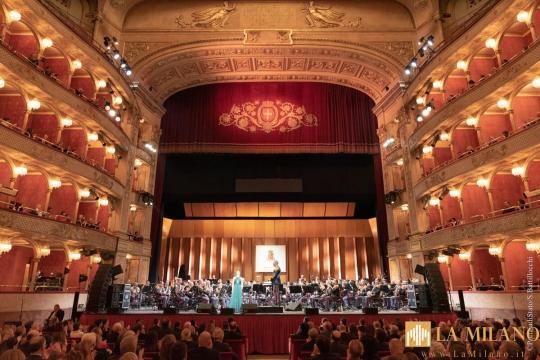
Roma: Il concerto della la Banda musicale della Polizia di Stato per il 171° anniversario.
A conclusione delle celebrazioni del 171° Anniversario della Polizia di Stato, nella serata di venerdì 14 il Teatro dell’Opera di Roma ha ospitato la Banda musicale della Polizia di Stato, alla presenza del vice presidente del Senato Maurizio Gasparri, del Ministro dell’Interno Matteo Piantedosi e del Capo della Polizia Lamberto Giannini. Il concerto è stato impreziosito dalla partecipazione di Serena Autieri e del soprano Maria Agresta e da una presentatrice d’eccezione, Paola Saluzzi.
Ospiti della serata gli operatori, i ragazzi e i familiari delle associazioni romane che si prendono cura delle persone con disabilità.
La banda Musicale della Polizia di Stato diretta dal maestro Maurizio Billi ha suonato grandi classici come la “Carmen” di Georges Bizet, i “Vespri Siciliani” di Giuseppe Verdi, “Io te vurria vasà” di Di Capua-Russo, ma anche “Roma nun fa la stupida stasera”, “Over the Rainbow”, “Almeno tu nell'universo” e “Caruso”.
A sorpresa sul palco anche Claudio Baglioni che ha incantato il pubblico intonando “Avrai” e “Strada Facendo”.
Durante la serata è stato conferito il premio di Poliziotto ad honorem alla presentatrice Paola Saluzzi per il suo impegno alla divulgazione dei valori della solidarietà e della legalità. Il Poliziotto ad honorem rappresenta un riconoscimento per l’impegno civile, il senso di appartenenza alla comunità, la solidarietà dimostrata senza distinzioni si impegna a promuovere i valori ed i principi di legalità propri della Polizia di Stato. Ad annunciare sul palco la consegna del titolo è stato Massimiliano Ossini, anche lui Poliziotto ad honorem.
I nipoti del Maestro Giulio Andrea Marchesini compositore di Giocondità - la marcia d’ordinanza della Polizia di Stato - hanno donato alla Polizia la bacchetta da direttore d’orchestra appartenuta al nonno.
Tante le persone del mondo dello spettacolo e della televisione presenti tra i quali il produttore Carlo degli Esposti, gli attori Federica De Benedittis, Massimo Wertmüller, Simone Colombari e Alessandro Parrello interpreti del corto della Polizia di Stato “Segni molto particolari” presentato a Cortinametraggio.
Il concerto è terminato con l'Inno Nazionale cantato dal trio d’eccezione Baglioni-Autieri-Agresta.
https://www.youtube.com/watch?v=lZx333Uxsc0...
#notizie #news #breakingnews #cronaca #politica #eventi #sport #moda
Read the full article
0 notes
Photo
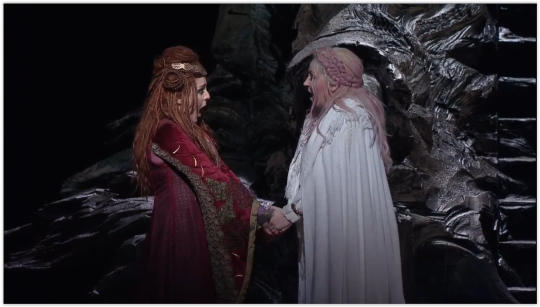

if people didn’t want this opera to be gay they wouldn’t always be staging "Si fino all'ore estreme" as a wedding
#you know i'm right...#swearing eternal devotion and exclusive fidelity is a very straight thing to do right?#Si fino all'ore estreme#Norma#Adalgisa#i love these two#they deserved so much better :(#Norma opera#Maria Agresta#Karine Deshayes#Sondra Radvanovsky#Joyce DiDonato#divas#sopranos#mezzos#Vincenzo Bellini#Felice Romani#Normalgisa#opera#opera tag#opera is so gay and i wouldn't have it any other way#Operablr Pride Month
17 notes
·
View notes
Photo

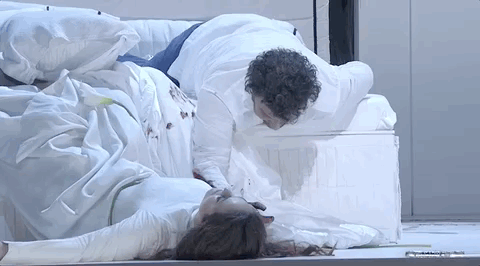

un bacio... un bacio ancora
ah!... un’alltro bacio...
Otello’s death scene from Verdi’s Otello (ROH 2017)
#giuseppe verdi#otello#jonas kaufmann#maria agresta#keith warner#Royal Opera House#roh#tw: blood#tw: gore#death scene#this was the only good part of the production tbh
80 notes
·
View notes
Photo
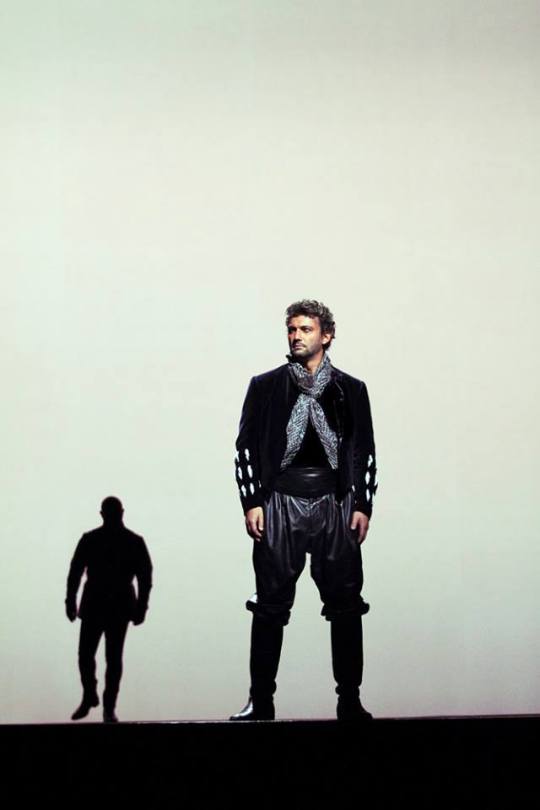




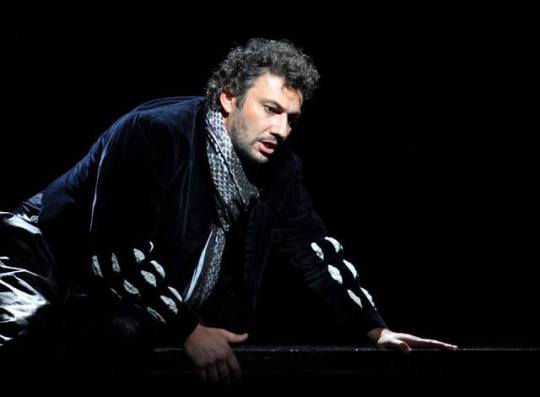
Jonas Kaufmann debut as Otello at the Royal Opera House. With Maria Agresta as Desdémona and Marco Vratogna as Iago, directed by Keith Warner and conducted by Antonio Pappano.
#jonas kaufmann#Otello#Giuseppe Verdi#opera#Royal Opera House#debut#maria agresta#marco vratogna#keith warner#antonio pappano#shakespeare
54 notes
·
View notes
Photo
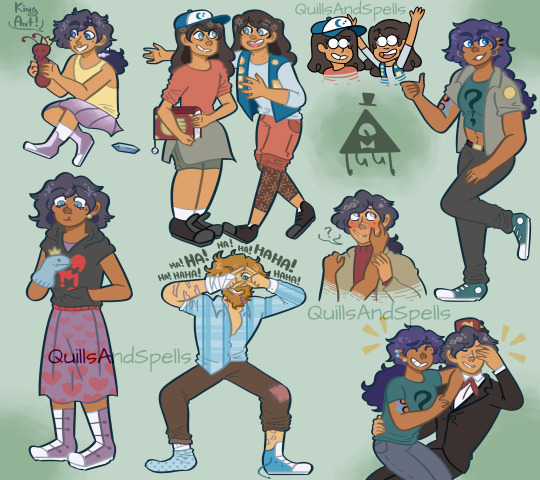
My friend @electhunderarts and I have been tossing ideas back and forth about a Gravity Falls au involving our characters! Nothing is really set in stone yet but I’m loving the general concept!
Interested in more art? I do commissions!
Ko-Fi || Redbubble || Youtube || Art blog
#my art;; The Doodle Gallery#my oc;; Allen Jeremy Ross#my oc;; Irene Maria Santina Gomez#shared oc;; Zelda Noemi Agresta Gomez#shared oc;; Sabrina Hwan Argenta Gomez#friend oc;; Castiel Luigi Ji Min Agresta
2 notes
·
View notes
Text
list of singers/conductors/opera personnel I’ve so far seen say something supporting Ukraine/condemning the invasion and war/sharing resources and/or condemnation of all this (will add as I see more):
Anita Rachvelishvili
Nadine Sierra
Lise Davidsen
Léa Desandre
Michael Fabiano
Elza van den Heever
Enrique Mazzola
Irina Lungu
Julia Bullock
Julie Fuchs
Speranza Scappucci
Alexandre Duhamel
Bärenreiter
OperaWire
Karita Mattila
Christine Goerke
Isabel Leonard
Brenda Rae
Jakub Jozef Orlinski
Deanna Breiwick
Ermonela Jaho
Nino Machaidze
Maria Agresta
Eleonora Buratto
Theater an der Wien
Miriam Albano
Louise Alder
Aryeh Nussbaum Cohen
Elsa Benoit
Brian Jagde
Anita Hartig
Ruth Iniesta
Hera Hyesang Park
Enea Scala
Amanda Majeski
Elsa Dreisig
Andriana Chuchman
Leah Crocetto
David Portillo
Olga Peretyatko
Corinne Winters
Jeanine de Bique
Sonya Yoncheva
Arturo Chacon-Cruz
Piotr Beczała
Erin Morley
Lisette Oropesa
Kirill Petrenko and the Berlin Philharmonic
OperaWire just did an article about this too: https://operawire.com/artists-condemn-war-show-solidarity-with-ukraine/
8 notes
·
View notes
Text
PREPARANT TOSCA: ELS CAVARADOSSI DE FABIANO I GRIGOLO
PREPARANT TOSCA: ELS CAVARADOSSI DE FABIANO I GRIGOLO
A manca d’àudios o vídeos que ens puguin donar una idea de com pot ser el Cavaradossi del jove Antonio Corianò sí que us puc oferir com són els Cavaradossi de Michael Fabiano, que substitueix com ja se sap de fa temps a l’inicialment previst Roberto Alagna, i el de Vittorio Grigolo que substitueix a Joseph Calleja, aquest un canvi d’última hora.
Per fer-vos una idea us proposo escoltar la part…
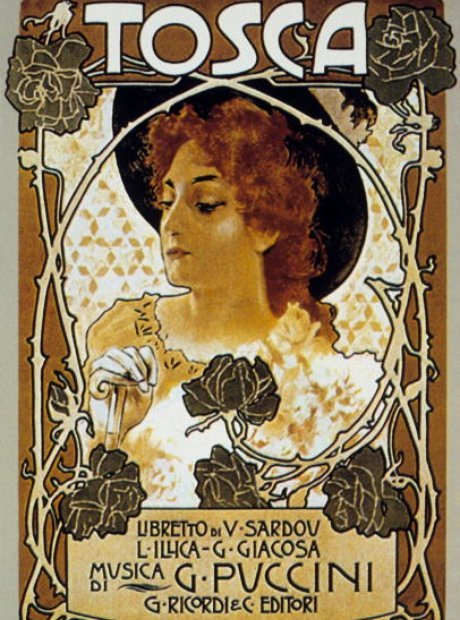
View On WordPress
#Carlo Montanaro#Ludovic Tézier#Maria Agresta#Michael Fabiano#Paolo Arrivabeni#Roberto Frontali#Saioa Hernández#Vittorio Grigolo
0 notes
Note
What do you think about the Calixto Bieito production of Simon Boccanegra for the Opéra Bastille?
A few wtf things (why is Fiesco a dick to poor dying Maria? it really contradicts the music) but compared to what he usually does it’s rather tame. Maybe he finally grew up?
The singers are really good, though. Tézier is perfection in this role, and Kares has a surprisingly huge bass for such a young man. He’s also by far the clingiest Fiesco I have seen :D He’s like the polar opposite of Furlanetto in that regard.
Also feat. Nicola Alaimo doing his best “Guillermo del Toro’s Secret Evil Twin” impression (another very good voice, too).
Agresta manages to act for once.
The tenor is ok. Gabriele rarely manages to be more than that.
Oh and Pietro is like 25 and ridiculously cute. He looks like a nerdy Colline.
2 notes
·
View notes
Text
La Scala 2021-2022 Opera Season and new philosophy
La Scala 2021-2022 Opera Season will present 13 opera productions, nine are new productions. Plus recycling, women's equality and lower prices.
Irina Brook
Despite the interruptions imposed by lockdowns and outbreaks of disease during the Season 2020-2021 La Scala managed to put on over 100 performances. The various closures also gave the theatre’s management a period of reflection, gleaning ideas for reorganising the theatre’s structure so that when the public returns it will enter a renovated, more modern, more welcoming and more…
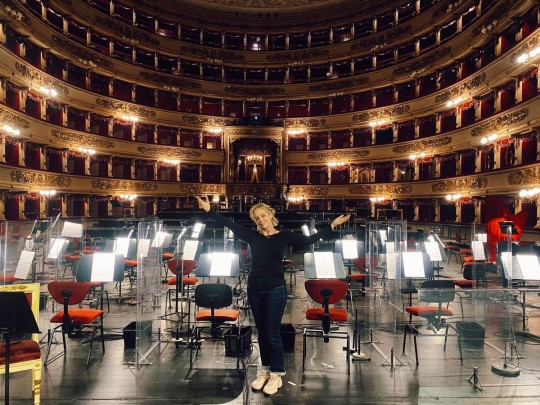
View On WordPress
#Ambrogio Maestri#Anita Rachvelishvili#Anna Netrebko#Daniel Barenboim#Daniela Barcellona#David McVicar#Erwin Schrott#Fabio Sartori#Francesco Meli#Ildar Abdrazakov#La Scala#Lisette Oropesa#Luca Salsi#Maria Agresta#Michele Pertusi#Ottavio Dantone#Riccardo Chailly#Robert Carsen#Roberto Alagna#Sonya Yoncheva#Valery Gergiev
1 note
·
View note
Text
Opera Criticism in ‘the Best of All Possible Worlds’ (Part 1)
Memoirs on My First Opera Season
This essay was published in Nemunas magazine on 21st of July 2019, translated into Lithuanian.
I’m now finishing my first opera season as an international opera critic. During this year I wrote about thirty reviews for three publications and started researching for writing two big articles about the problems of the industry. But the more I write about the opera world, the more problematic I find sharing my critical opinion.
Far behind repertory stagnation, gatekeepers, merciless directors, and other serious issues, we are quietly missing the crisis of criticism. And it’s nothing about unprofessional writers or loyalty to singers and opera houses.
It is about two most important components — the opinions and the medium for their distribution.
Here you can read a full version
Part One: What’s on Us?
When I started to write about opera, I got an additional course in Music Theory from the University of Birmingham. I thought to refresh my knowledge was really important. So I could describe what I’ve seen more confidently. Go, watch, review. That’s an opera criticism, as is. And I’ve adored some perfect examples of this: complex, with numerous details about singing, acting, and conducting, balanced with special terms, and not confusing. And yet, they contained nothing on the background. Nothing, that could affect the industry as a whole.
Critics lacked complex vision. The reviews, sharing something more than a professional opinion about the performance — some conclusions made on the basis of experience and confirmed by what’s just been seen were very rare.
But isn’t it a responsibility only opera critics could take? To watch and to estimate the general progress of the entire industry. Aren’t we those who have both a proper knowledge and an ability to describe and discuss problems in the best way? Why most of us, critics, avoid doing this?
When I see another performance, I always recall some previous operas I’ve seen and find connections. Together they always reveal some common issues. Something bigger than a particular production. And sometimes I do spend half of my article to discuss this notable problem. Though I never judge. I try to ask questions. I try to represent different perspectives as I see them. I can find a topic for a separate article after every performance I’ve seen in my life, but should I? Should I write another big piece, trying to catch attention to this problem out of nowhere, when I have a vivid example illustrating my thoughts? So I find it more accessible for an audience [and accessibility is extremely important] if I include those related topics in my review.
I’m not saying, put your extra thoughts in your every review. I’m saying, show what you have more. In your articles, in your lectures, in your talks.
Don’t you feel like this or don’t you feel like doing this?
You will say, I know you will because I had some talks like this before, that you haven’t noticed any trends besides some obvious. I’ll say — you need to study. You’ll say that you’ve been doing this job for 20 years and my approach doesn’t work for you. I’ll remind you that the world is changing, and the art is reflective.
I’ll ask you to tell me about #metoo in perspective of opera. You’ll say about women in the industry, about those who’s been hurt. I’ll ask if that’s it. You’ll remember some miserable female characters, nothing related to the general progress of the industry though. I’ll agree. I’ll ask about Calixto Bieito. You’ll roll up your eyes. Easy! He’s a monster! There’s always something offensive in his violent productions…
I’ll recall November evening in 2018 when I rushed into Opera Bastille straight from an airport. With the last call, I was making my way through the line of opera critics to my seat in the middle of a row. I was a black oversized sweater, messy hair, tired, carrying my backpack. They were noble, refined, male, fifty plus. They had estimated me. And they were right, I was different.
That was opening night of “Simon Boccanegra”, a new production by Calixto Bieito, featuring Ludovic Tezier and Maria Agresta.
“…In his production, Calixto Bieito decided to add and highlight the character of Maria Fiesco. When you see her in the prologue, Jacopo Fiesco drags a plastic sheet with a girl on it. She is still alive. She seems no more than a victim of his. She is moving but isn’t resisting. […] In the next scene, she is already dead, but stands up and starts her senseless existence on stage almost all the time, half-naked, receiving just anxiety or ignorance from everyone else. Even Simon, after his own death, heads toward her but also abandons her.”
That’s how I later described the most offensive part of this production. My colleagues did the same. And then, they were stuck. As they were stuck during the premiere.
One of the critics questioned loudly during the interval, “Isn’t it disgusting?”
“Offensive,” I corrected quietly to myself.
My neighbor leaned to me, “Do you know, what to say about it? How to justify your opinion against the big name of the director?”
“I do,” that was a promise.
“I’m happy you’re here then, we need you to say something,” he left me pop-eyed.
So I would conclude the description of that performance and quite likely the whole review with questions on eternal values in the modern world — in the opera world, expecting if not to start a dialog, then to provoke some thoughts:
“A woman, a lover of the main hero, a mother of his beloved child, a great loss for her father, a symbol of memories. Maria represents all of these virtues in the libretto itself. But here we see her as a victim, before and after death — weak, ignored, with no goal and reason to exist, naked, autopsied and surrounded by rats on the curtain during the interval. What this representation was supposed to mean? Is it the image of a woman we need in contemporary opera? Moreover, how does this support the themes of unity that encapsulate the opera itself?”
No one else asked any questions or did any conclusions in their reviews. They were short. They punctuated: Terrible. Disgusting. Wasted. And then, they returned to describing a beautiful singing.
I wasn’t sad, because I remembered us walking down the stairs after the performance. I was sharing my ideas modestly, my colleagues were promising not to copy. I wouldn’t mind, and yet they wanted to share their own opinions.
Suddenly, one of them asked, “What should we study about that?”
I was glad to hear this question.
I said, “You should study the modern world.”
We laughed, and he asked for something “petite” to start.
I suggested #metoo but in art perspective. “And then,” I added, “rotate those terms. And study more.”
Short and easy to remember. Not that easy to do.
But I assumed they would find what to say next season. And I had to rotate the perspective already in a month, talking about how weak argumentation could harm feminism on the example of a new production of “Otello” at Bavarian State Opera.
“The character I really feel sorry for is the victim — Desdemona,” — [director Amelie] Niermeyer said. I wonder, why having all the instruments to highlight any shade of Desdemona’s personality, the director decided to show this proud, true, and noble woman as just a victim, deserving pity?
Perhaps, Niermeyer tried to bust the problem, depriving it of “unnecessary details.” Details like a social context and love itself. And what was shown was just darkness with no shades.
Instead of blackface, the director turned the whole opera into black.
In this review, I had to defend a historical and social context, proving that you cannot change the source for the sake of your ill-conceived ideas. I also advocated feminism as a reasonable and relevant idea against what was showing in the performance.
After the first half of a season, I caught myself thinking I was writing on women’s right way too often. I didn’t want to be branded this way. But instead of avoiding the topic, I decided to study more and open my eyes to the bigger picture. Indie opera, local theatres, new approaches. And this worked out perfectly.
There would be many general problems to discuss in my followed reviews: the big topics of the small operas, the importance of the inner match to the role, the external perspective of the directors, acting and dramaturgy, sustainability, national mentality, popularity and status, experiments, and gatekeepers.
Also, many of them would lead to the greatest one — the lack of open communication in the industry. Solving this problem would be the long-run objective of my future research.
But even before reaching this goal, I see clearly — an opera criticism is an essential tool to build these connections, but only if we use it to the full.
#opera#opera tag#opera critic#operalover#opera lover#Opera de Paris#BSO#Bavarian State Opera#jonas kaufmann#kaufmann#bieito#Anja Harteros#ludovic tezier#maria agresta#lnobt#feminism#art#women's rights#criticism#journalism#essay
0 notes
Text
Ensnaring the Soul: Thoughts on ROH’s “Otello,” and its Demi-devil
Ensnaring the Soul: Thoughts on ROH’s “Otello,” and its Demi-devil
I will start by saying that I adore Shakespeare’s Othello, and I’m far more familiar with the play than with Verdi and Boito’s opera. (So, you’ll see various “Othello” versus “Otello” spellings depending on which I’m referring to.) But knowing just enough of this opera to feel both its intensity and its difficulty, I was in as much anticipation as any to hear and see the interpretation of Jonas…
View On WordPress
#antonio pappano#jonas kaufmann#keith warner#marco vratonga#maria agresta#otello#ROH in cinema#royal opera house#shakespeare#verdi
0 notes